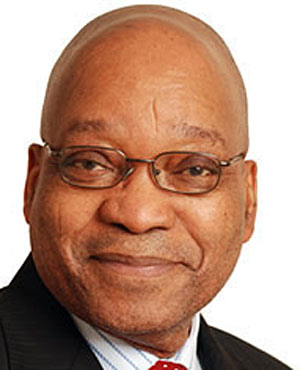Results of election into Municipal councils in South Africa held last Wednesday has not meant a clean sweep of the African National Congress, (ANC) as feared in some quarters although it did not leave it without dents. As a local election, it is not so much the details of the contest that counts. For outsiders in particular, attention to the election is only to the extent that the ANC is practically on trial in relation to the promise of liberation. The magnitude of the threat to its hold on power nationally as revealed by the results is not so awesome but it signals cracks on its hold on power. It would seem that this is the beginning of the end to the romance between the ANC and the voters. The significance of such would be that after 22 years, the economic strategy of growth and foreign direct investment is now under popular scrutiny. South Africa presents a peculiar and interesting case study in the story of the flight of the typical African state from the joys of independence to the turbulence of transition.
Magically easing into democracy without bloodshed in 1994 had privileged reconciliation. But the majority eyed redistribution. The leadership faced a challenge of managing the two different requirements. Reconciliation is not necessarily contradictory of redistribution but how do you redistribute without producing more? For an African country with a comparatively strong foot in industrialisation, opening up was advisable. So, an FDI based strategy wasn’t totally unreasonable but it also meant hollowing out the state in favour of the conditions favourable for foreign investment. Hence, the movement from Reconstruction and Development Programme, (RDP) to Growth, Employment and Redistribution, (GEAR).
Thabo Mbeki had taken over from Mandela this time and, like Obasanjo of Nigeria, believed in the desirability and possibility of penetrating neoliberal globalisation. Both literarily railroaded Africa to the neoliberal framework. They both drank from a same cup in terms of attitude to governance. Foreign policy was for them the high area and foreign policy was about inching Africa into that orbit. In both countries, election results have been rejecting this road so far. Although South Africa has been moving from the liberal to the developmental state as against the tradition of moving from developmental to liberal state, starting with liberalism appear to be part of the problem in addition to the international context of her statehood and, of course, the leadership question. South Africa is the country to watch in terms of the ANC, the party with the most legitimacy and pedigree at the time of taking over power. Its success would, of course, be a wonderful statement in African determination to make it just as its failure would equally be such a terrible reality.



























